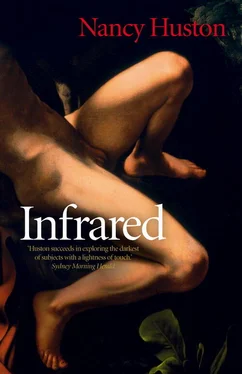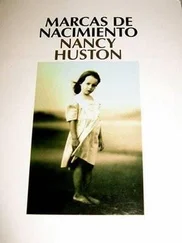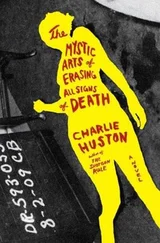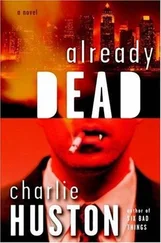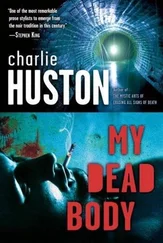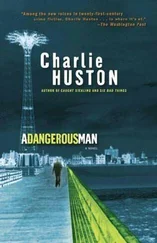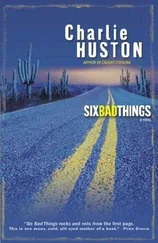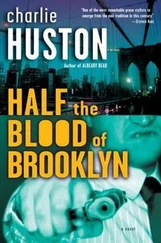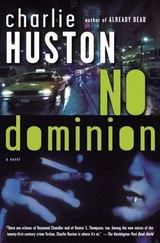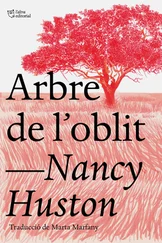Subra nods sympathetically. She refrains from pointing out that Aziz generally spends only one or two nights a week at Rue des Envierges, and hasn’t yet come to a decision about moving in with her, let alone making her his wife.
‘You’re not very talkative today, Rena,’ says Ingrid after about an hour’s drive west on the FiPiLi (Firenze, Pisa, Livorno).
‘Sorry.’
To bring them up to date on what is happening in France’s impoverished suburbs these days, she’d have to give them a lecture on French colonial history since 1830. Not having the strength for that, she holds her tongue.
Ingrid hums to herself to fill the silence.
Obsessed with his responsibility as guide, Simon keeps his eyes glued to the map and sees virtually nothing of the gorgeous landscape it represents.
Vinci
Lunch break. Across from their charming restaurant at the cliff’s base, the Tuscan hills undulate to infinity. Grapevines, cypress trees, red roofs: the very landscape Leonardo immortalised in his Giocanda. Ah, ineffable harmony…
Harmonious, too, are the hues and flavours of the dishes brought by the waiters.
Among the three of them, though: nothing but false notes.
Looking at her stepmother, Rena thinks of her mother and feels anger rising within her. She is furious that it should be too late for fury, too late for anything.
Oh, Lisa! Mona Lisa! Nearly thirty years now since you effaced yourself, like Alice’s Cheshire Cat. Yes, that’s one way of putting it. It’s as if Leonardo had rubbed out the Giocanda’s hair…the contours of her forehead…her cheeks, her eyes, and finally her enigmatic smile…Now all that’s left is the landscape, undulating to infinity.
She gets up and goes to the bathroom, where she changes her tampons and has a good cry. Still sitting on the toilet, she wipes her nose and crotch, then starts flipping through the Guide bleu to calm her nerves.
Hmm. Turns out Leonardo had not two but five mothers — Caterina, Albiera, Francesca, Margherita, Lucrezia. All but the first (who gave birth to him) were married to his father — successively, of course. Not simultaneously, like Fela Kuti’s wives.
You see? Subra exclaims. The word ‘family’ has always meant una cosa complicata.
Yeah, you’d think people would stop acting so surprised about it. As if the norm were a stable, stainless-steel nuclear unit. Bullshit. Œdipus grew up with adoptive parents, far from his native Thebes. Kerstin’s son Pierre has only a nodding acquaintance with the man who sired him; my Toussaint, Fabrice’s son, was raised by Alioune, whose own father was polygamous and absent; as for Aziz, his dad died when he was four and he has no memory of him at all. Families have always been a mess, so why am I sitting here crying my eyes out in the toilet of a restaurant in Vinci?
‘It’s nearly three,’ she says, re-entering the dining room dry-eyed and straight-backed, all her fluids under control. ‘Shall we do some visiting?’
Vinci gives them the choice between two museums, the Leonar-diano at the top of the hill and the Utopian Museum at the bottom. Both promise wondrous machines, models and sketches. (A wooden bridge, for instance, built without a single nail! Logs, nothing but logs, criss-crossed into a structure of mutual support — very handy, if you’re an army and you run into a river…)
‘Which do you prefer?’
‘I’ll let Dad decide.’
‘Dad?’
Her father hesitates, compares, skims the brochures, dawdles, temporises, checks out the façades of church and castle, admires the panoramic view from the esplanade.
The minutes go sliding by.
Finally he makes up his mind: ‘Neither…This little book will do just fine.’
The story of his life.
‘Well, then, let’s at least visit his birthplace — it’s called Anchiano. It’s just three kilometres away.’
A winding mountain road…
It was on winding roads such as this, in the Laurentians, that my father later gave me real driving lessons. Teaching me, for instance, to avoid carsickness by moving to the left of the white line as I came out of a leftward curve. I’ve now got that technique down pat; I wish Simon would notice it and say something about the good old days…
But her father goes on obsessively studying the maps.
Anchiano
Having dropped off the couple next to a sign pointing to the artist’s birthplace, she drives on alone to the car park. When she catches up with them, they’ve come to a halt in front of a tree.
‘What kind of tree do you think this is?’ asks Ingrid, turning to her.
‘It’s a fig tree,’ she says peremptorily, hoping to cut off idle speculations.
‘Are you sure?’ asks Simon.
‘Sure I’m sure. Look — the leaves have five fingers, like an open hand. And here’s another way of checking — crush a leaf and smell it; the scent is unmistakable.’
Exquisite memories of fig trees from the past go wafting through her mind. The heady, honeyed fragrance of the dried fig leaf Aziz handed her in the inner garden of Paris’s Great Mosque, an hour after making real love to her for the first time. Walking down a fig tree-lined path as a dramatic harvest moon rose over the Black Sea and her Bulgarian lover’s hand stroked the small of her back, then slipped inside her shorts and caressed her intimate flesh with such musical precision that she started to come, amazed to be able to come and walk at the same time. Toussaint and Thierno climbing into a fig tree and stuffing themselves with its fruit, one November weekend in Syracuse…
‘I’m not so sure,’ her father says. ‘Where are the figs?’
‘It’s not the right time of year,’ says Rena.
‘Yes, it is,’ he objects. (Touché!) ‘Maybe Jesus struck it down in a fit of rage,’ he goes on. ‘You know, there’s that strange passage in Saint Matthew where…’
‘Yes, I know,’ she says, cutting him off. ‘I know.’ What else? Fig tree, fig tree…(When did this hateful rivalry between them begin?) ‘In Italian,’ she says, ‘the equivalent of “I don’t give a damn” is “Non me ne importa un fico”.’
‘Really?’ says Ingrid, to say something.
‘Yes. The fico is a symbol of the vagina — the very epitome of worthlessness, as everyone knows.’
Ingrid blushes and turns away.
‘And that’s not all,’ Rena insists, recalling a reportage she did long ago in the favelas of Rio. ‘In Brazil, instead of giving people the finger, you give them the fica.’
‘What’s that?’ her father asks.
‘Uh…’ she says. Oddly enough, she can’t remember. Do they hold up an open hand, its five fingers symbolising the fig leaf? No, she doesn’t think so…Hm. ‘It’ll come back to me.’
As they turn their backs on the tree at last, she brings the crushed leaf to her nostrils.
It smells of nothingness.
Two white-washed rooms, touchingly stark and spare.
Here, she thinks. Born here. Babe-in-arms here. First gaze on life here, the master of the gaze.
Ostensibly in homage to Leonardo, the first room is plastered with hideous paintings by a contemporary artist. Rena and Ingrid take one look at them, shrug and move on. The second room is filled with reproductions of the master’s anatomical drawings. Studies based on corpses, the surface stunningly rendered thanks to the artist’s familiarity with the depths. Bones, muscles, tendons, arteries — the intricate, secret machinery of the human body…
An hour later, they go back to join Simon, who has remained in the first room all this time, cursing the modern paintings. ‘It’s outrageous,’ he says, as the guard announces closing time. ‘I felt like slashing them!’
Читать дальше
